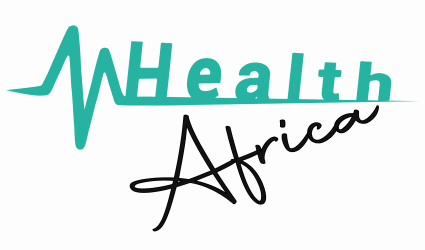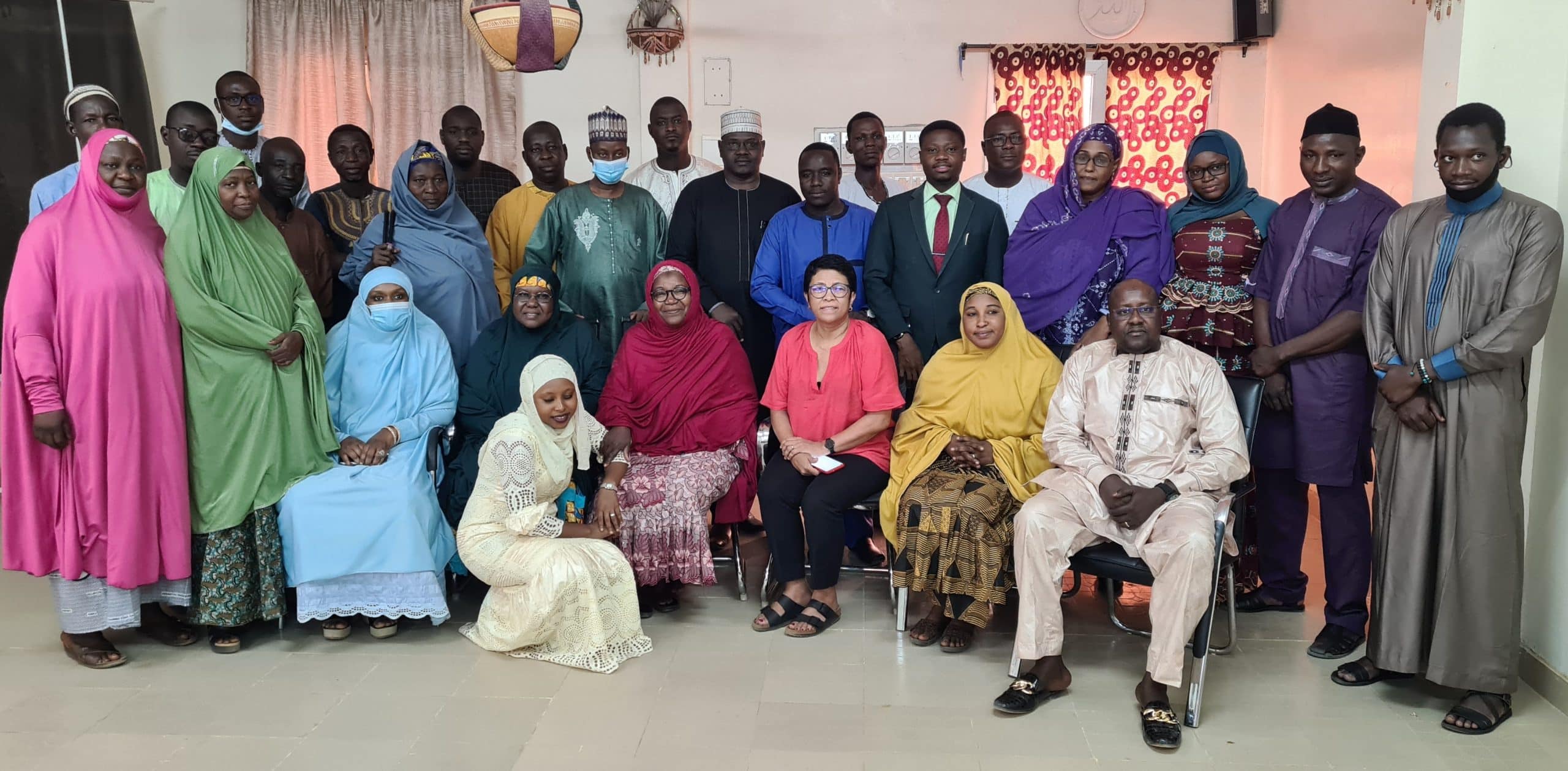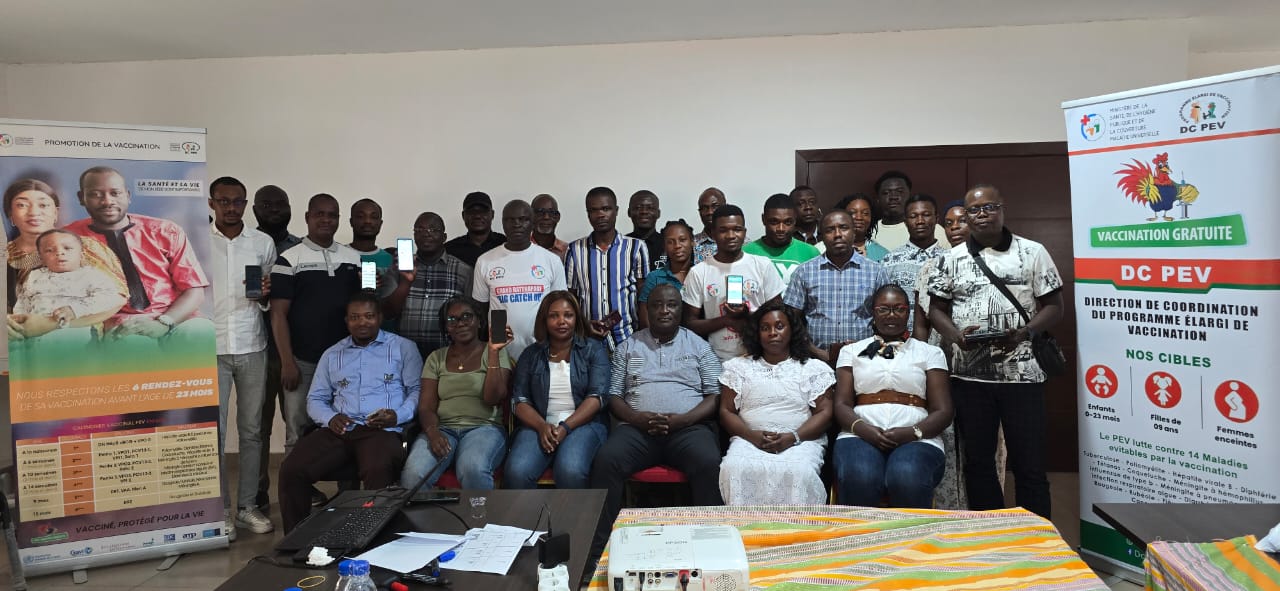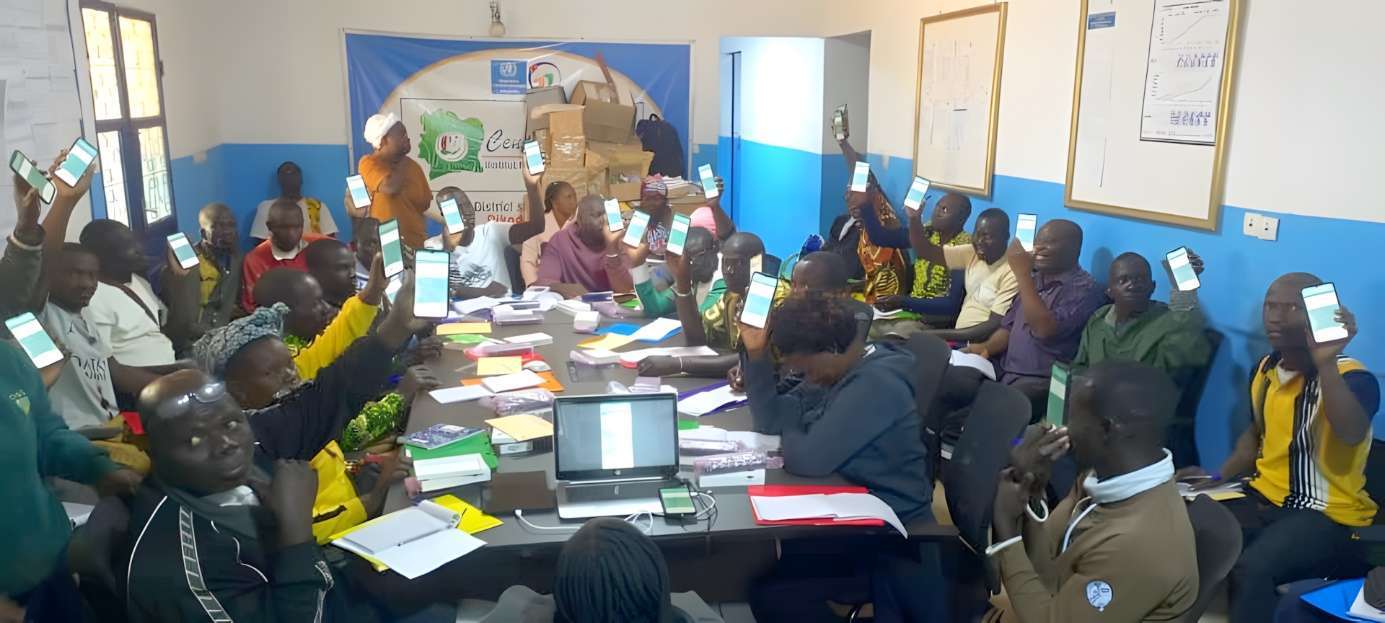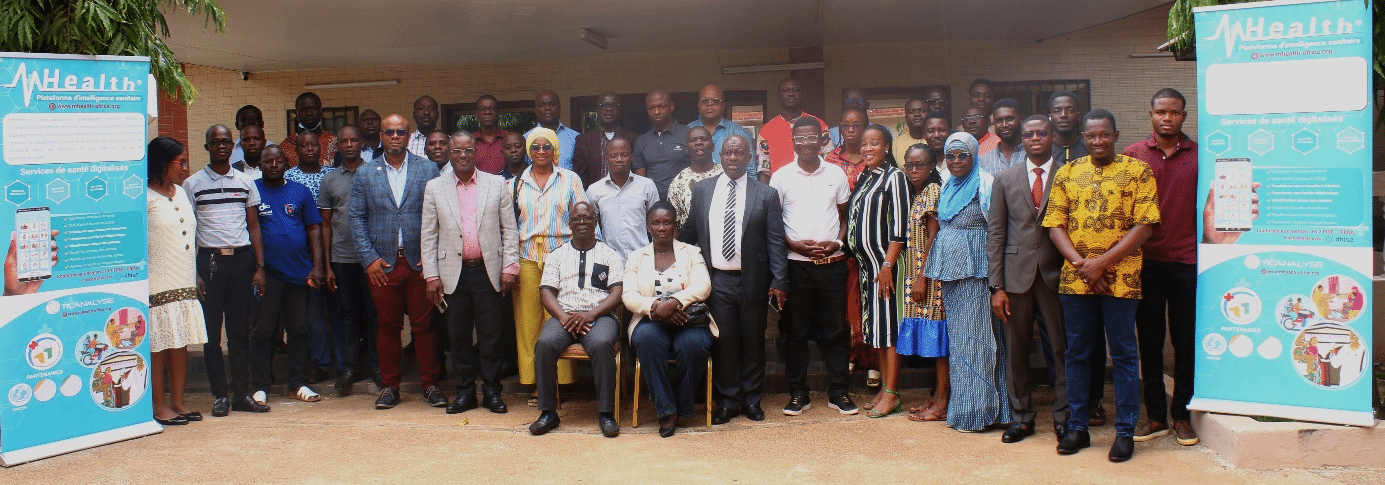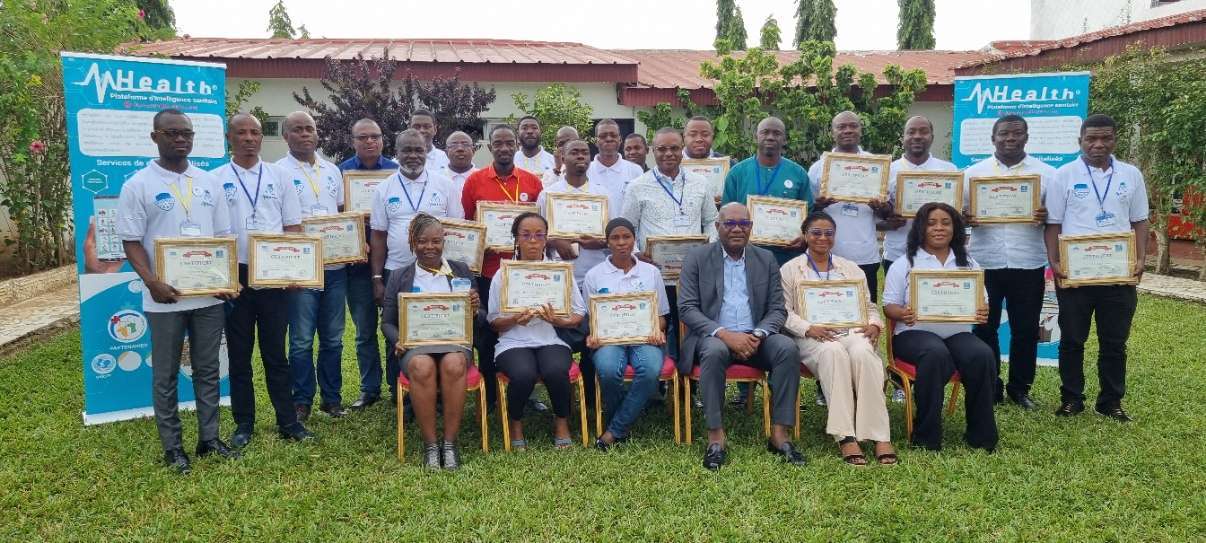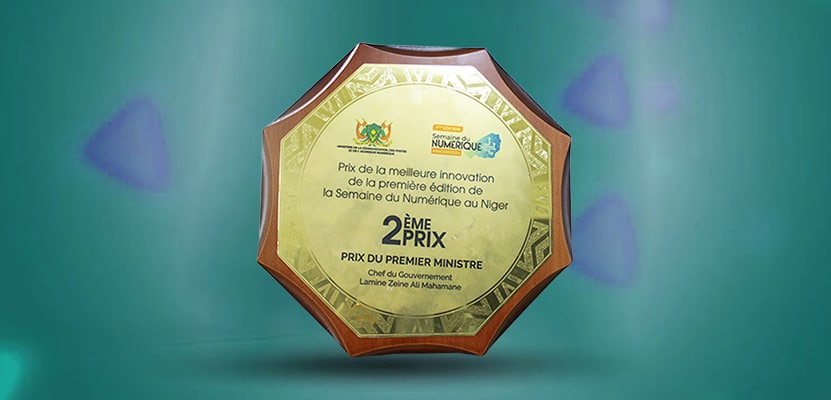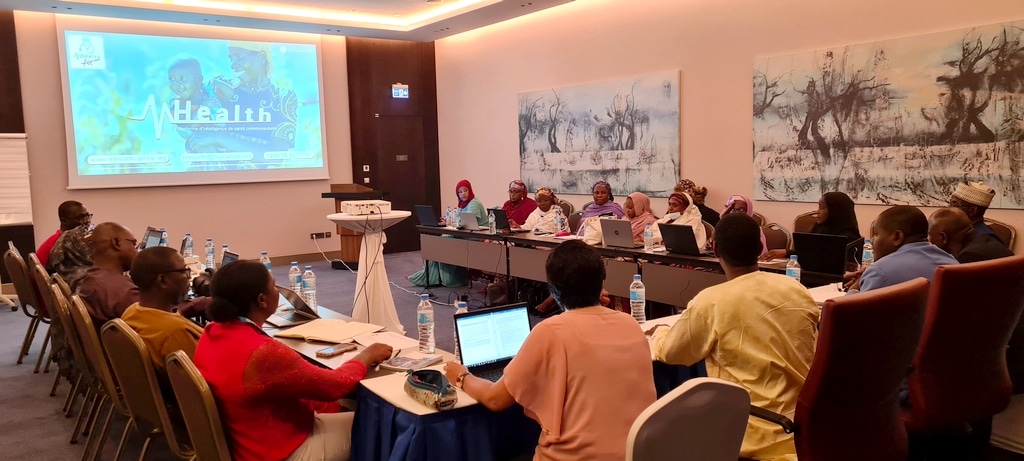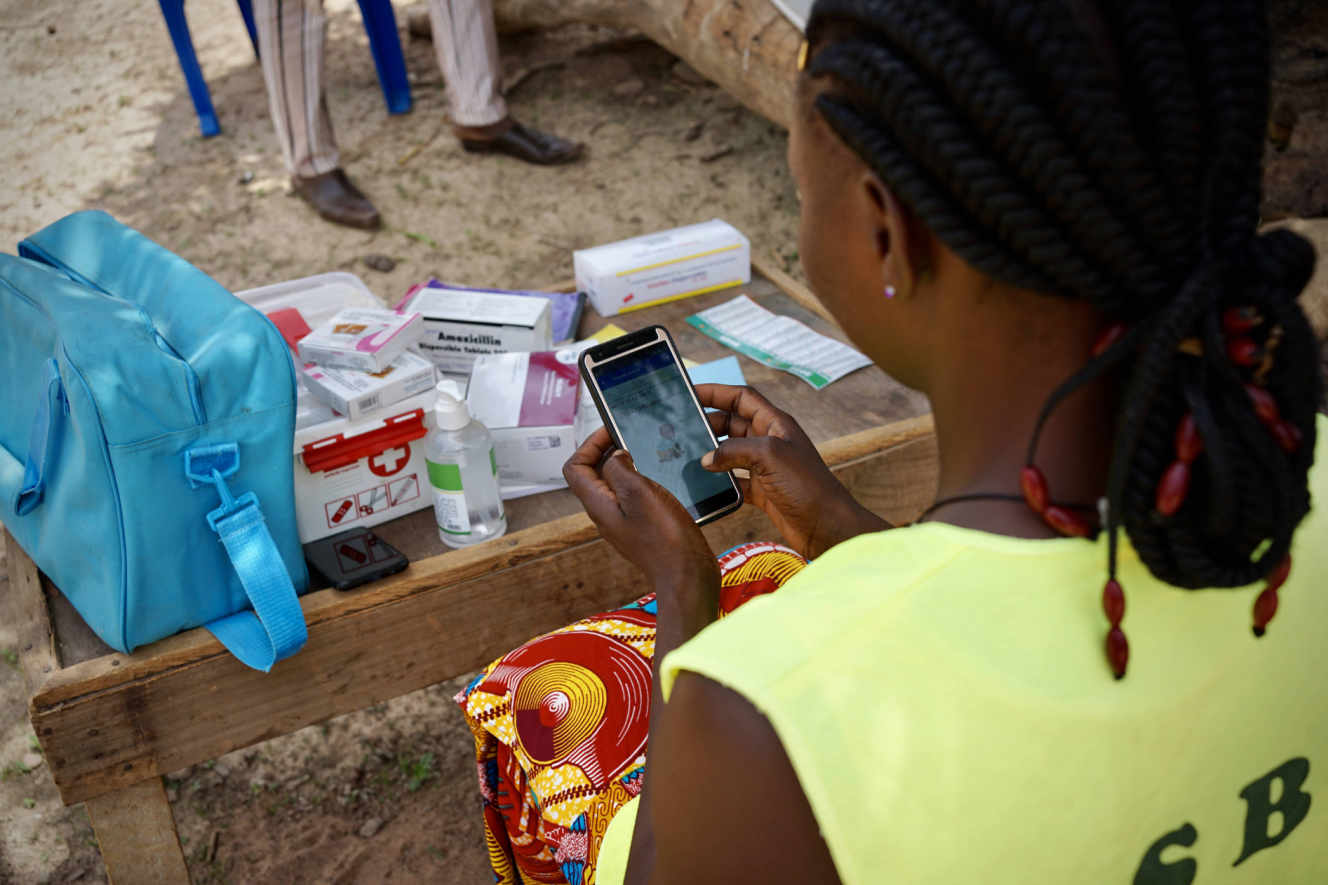Designed and developed by the IT engineering company TICANALYSE, mHealth is a health intelligence platform that enables the integrated management of community health information through the collection, encryption, transmission, processing, analysis, visualisation and sharing of data for better decision-making and greater efficiency in the healthcare system.
Le but du déploiement de mHealth était d’améliorer la qualité de la prise en charge des enfants dans le cadre de la Prise en Charge Intégrée des Maladies de l’Enfant au niveau Communautaire (PCIME-C) et de contribuer à l’obtention des données sanitaires communautaires de qualité pour une meilleure prise de décisions et une meilleure planification dans le domaine de la santé communautaire.
Since its creation in 2014, the mHealth system has undergone 3 developments:
- In the first setting (2014), data was transmitted via basic SMS services. The community health worker received a question and transmitted the answers by SMS. He could only transmit data from reports...
- La seconde version (2016) à vu le déploiement de l’application Java J2E du système sur les téléphones des agents. Cette version ne prenait toujours en compte que les rapports et les données étaient saisies dans l’application qui elle se chargeait de la transmission au système central.
- To keep pace with technological developments and improve collection, an Android version was released in 2019. This version on Android smartphones enabled direct support (PCIME and PSBI). The central server was responsible for reporting.
Since 2022, the system has entered a new phase in its development. It has become a monitoring and steering system for community health. A Super App is a mobile application that integrates other applications to provide access to a whole ecosystem of services.
mHealth now offers :
- L’enrôlement des unités d’organisation (agent communautaire, ICP, District)
- The location of the community agent's area of intervention,
- Management of children aged 2-59 months (PCIME) with a control algorithm,
- PSBI data entry for children aged 0-59 days,
- Monitoring references and counter-references,
- Monitoring the stock and replenishment of inputs,
- Monitoring children's vaccination status,
- Appointment scheduling and reminders,
- Registering and monitoring cohorts of pregnant women for the ANC,
- Registration and monitoring of births and newborns for vaccination,
- Monitoring the civil registration of newborn babies
- The census of children under 5 years of age.
- Community death alerts (maternal and neonatal)
- Disease alerts (signs of meningitis, measles, etc.)
- Gradual notification of organisational units and patients
- Data entry of educational talks by PFE,
- Data entry for ANJE support group meetings,
The "mHealth" system started up in Niger in 2018 in the Illéla health district in the Tahoua Region and in 2021 in the Mayahi health district in the Maradi Region.
Lors d’un atelier qui s’est déroulé du 28 Mars au 1er Avril à Liboré (Département de Kollo), la Direction de la Santé communautaire du Niger a adopté cette nouvelle version de mHealth.
Under the supervision of the Department of Community Health (DSC), with the support of the DSME, the Department of Statistics (PEC) and the NMCP, an extension of the deployment of mHealth is planned for 2022 in the health districts of Dakoro, Bagaroua, Abalak, Boboye and Malbaza, with an update of the equipment and skills of those involved in implementation at peripheral level (MCDs, CSEs, Heads of CSIs and RCom) in the districts of Illéla and Mayahi.
